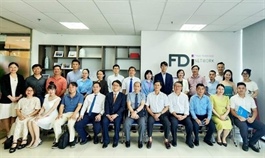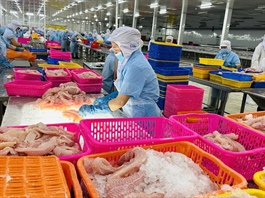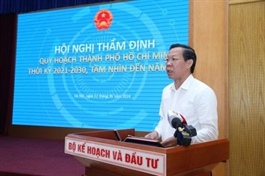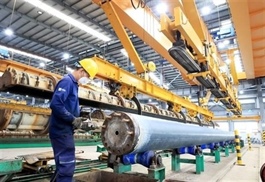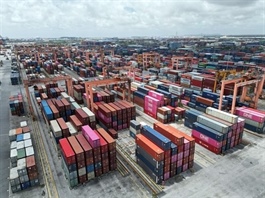Fundamental shift needed, SCIC proposes change in state capital management
Fundamental shift needed, SCIC proposes change in state capital management
There needs to be a fundamental shift from strengthening management in state-owned-enterprises (SOEs) to consolidating and developing them, while building several large-scale, efficient economic groups capable of regional and international competition in key economic sectors, the State Capital Investment Corporation (SCIC) has announced.
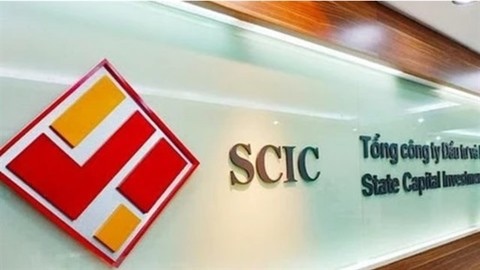
The logo of the State Capital Investment Corporation (SCIC). — VNA/VNS File Photo |
The SCIC recommended unifying the different functions of state capital management, while separating it from representing state ownership and transiting from administrative management to capital investment and business management, especially once SOEs have been converted.
In addition, there must be clear distinctions between SOEs solely owned by the state and those with partial state ownership due to their different operational mechanisms and purposes. Management of SOEs solely owned by the state often strive for political and social objectives; SOEs with partial state ownership may favour economic objectives, while trying to balance the interests of the state and other shareholders.
SCIC leaders highlighted the role, assigned by the Politburo and contributions of the corporation in promoting the restructuring, renovation and enhancement of SOEs' efficiency and competitiveness.
They said with the support of the government in introducing new policies and a more favourable legal environment, the SCIC will continue its operations effectively.
An example would be under Resolution No. 68/NQ-CP (from May 12, 2022) when the government instructed the SCIC to support SOEs in fostering innovation, improving operational efficiency and mobilising resources. It was also an effort to enhance the role of the corporation, as a government investor, to attract additional financial resources into large, important enterprises and projects.
Government support for the SCIC is implicit in the corporation's development strategy for 2021-2030, which has a vision to 2035 and focuses on promoting investment activities.
In order to operate effectively, the SCIC has sent several suggestions to the government, proposing a separate chapter detailing regulations for enterprises with state capital investment and business functions, with greater authority given to the SCIC.
The regulations should identify the decision makers at various levels in business and financial investment activities, evaluate overall portfolio efficiency, regulate external investment and remove current limits placed on some economic sectors.
For political-social investment activities, the SCIC advised the government to develop a more appropriate evaluation method based on political-social objectives rather than just preserving state capital.
In addition, there should be a specific mechanism for capital recall and increased flexibility for investments made by the SCIC. There should be a specific mechanism for capital withdrawal, increasing flexibility and initiative for SCIC's investments. The handling of enterprise charter capital should follow a separate mechanism and the SCIC should be credited with additional charter capital from receiving state ownership rights at transferred enterprises.
The corporation also called for the clearing up of certain ambiguities that may cause issues in the SCIC’s operations, including the capital classification from ministries and localities.
Since it was formed in 2006, the SCIC has taken over 1,081 SOEs in 25 groups and corporations with a total state capital exceeding VNĐ32.34 trillion (US$1.27 billion), including large projects such as the Vietnam National Textile and Garment Group (Vinatex), the Vietnam National Seaproducts Corporation (Seaprodex), the Vietnam Construction and Import-Export Joint Stock Corporation (Vinaconex), the Infrastructure Development and Construction Corporation (Licogi), the Vietnam Steel Corporation, the Sông Đà Corporation, and the Saigon Beer-Alcohol-Beverage Corporation (Sabeco).
The SCIC also played a crucial role in introducing foreign investors into companies including the Hậu Giang Pharmaceutical JSC, the Domesco Medical Import-Export JSC, the Tiền Phong Plastic JSC and the Bình Minh Plastic JSC.
SCIC helped sell state capital in 1,059 SOEs (as a whole in 955 and partially sold in 104) and sold purchase rights in 19 SOEs, generating VNĐ51.84 trillion, 4.1 times the initial capital.








